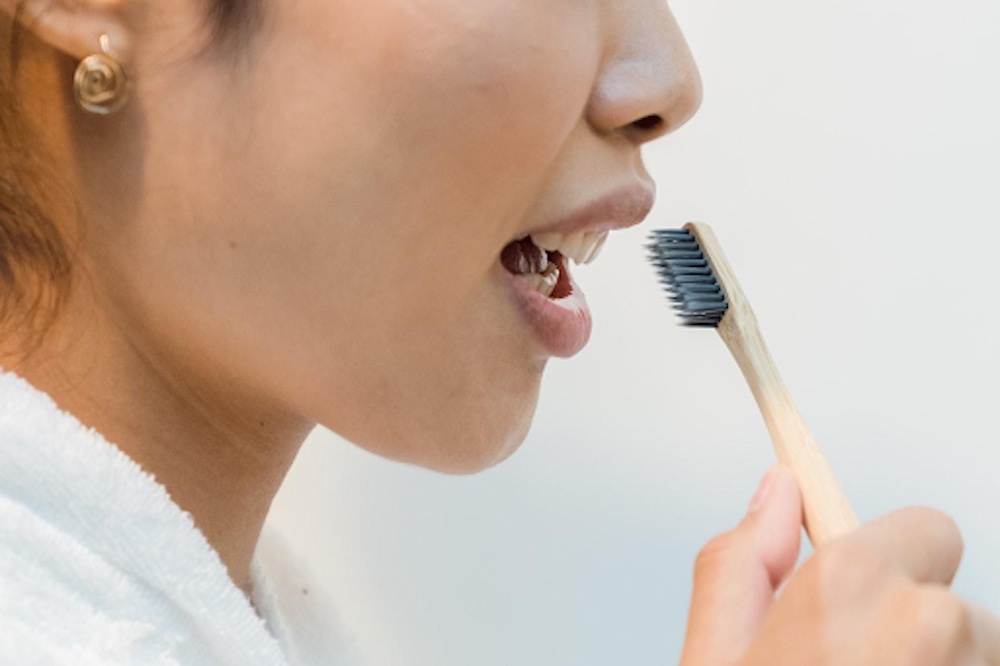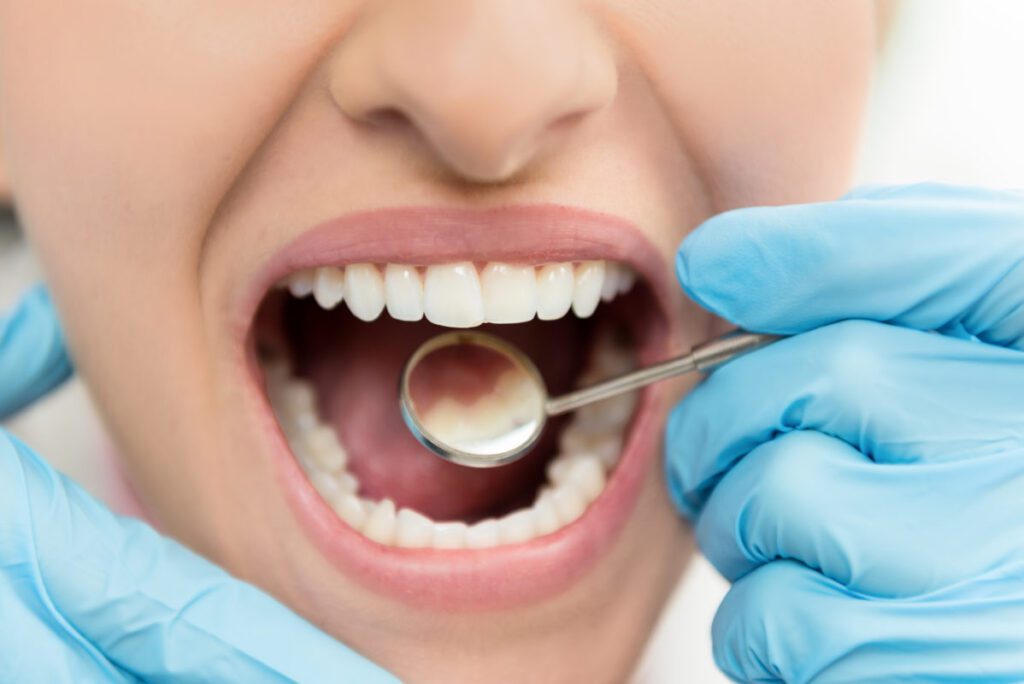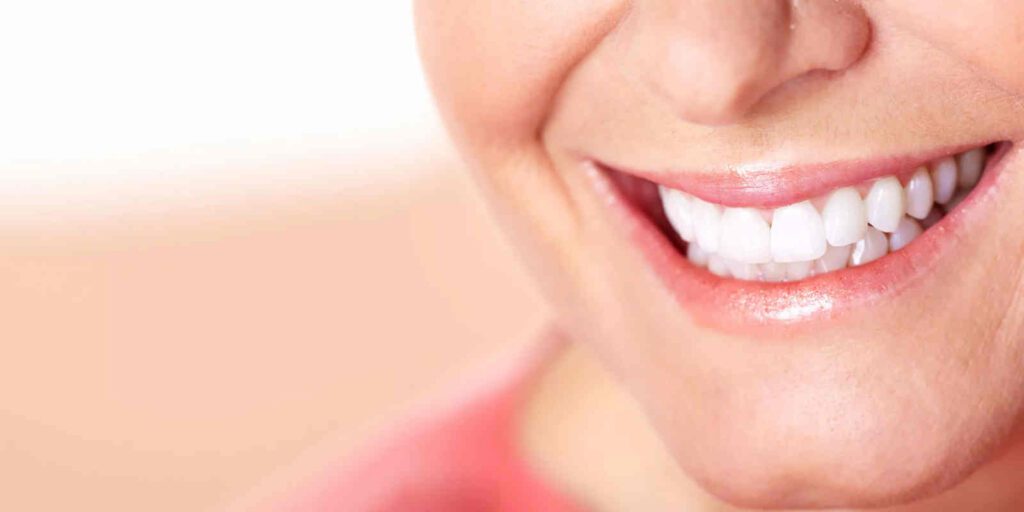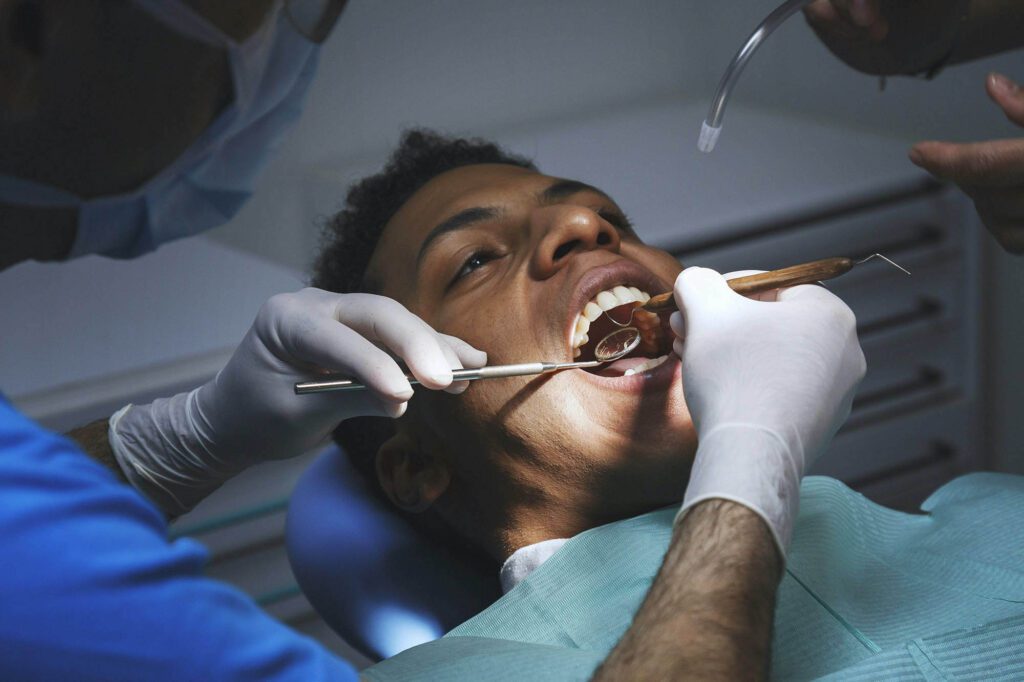
7 Dental Hygiene Tips Beyond Toothbrushing
You can see a lot of changes in your mouth in as little as 8 hours, especially if you’re asleep and bacteria is accumulating on your teeth. However, don’t let the idea of unpleasant plaque, infections, tartar, or periodontitis prevent you from having a decent night’s sleep. You may take care of your oral health while you sleep in various ways. Here are 7 suggestions to help you and your mouth survive the evening.

- Use the right kind of toothpaste
When it pertains to dental hygiene and tooth enamel, a frequent myth is that all teeth-whitening solutions are good for your teeth. However, bleaching toothpaste that comprises hydrogen peroxide can be too severe on your enamel because it can weaken it and promote unwelcome hypersensitivity.
Pick a toothpaste instead that gently eliminates stains without the use of peroxide. Fluoride is a key component in enamel protection since it aids in remineralizing the enamel and reducing tooth sensitivity.
- Don’t just brush, start flossing
By flossing, you may get rid of plaque and solid debris while they’re still soft. Bacteria can multiply throughout the evening and feast on your teeth if this debris is left on your teeth.
Additionally, tartar, which can only be addressed by a dentist in Sarnia or hygienist during deep cleaning, will form if the plaque is left to harden. Most people are fine with merely flossing at night, but doctors advise morning flossing if you have a history of gingivitis or tartar buildup.

- Use mouthwash
Fizzy drinks are the main offenders because of their extreme sugar content and strong acidity, which together hasten the deterioration of your dental enamel.
To get rid of the debris in your mouth that irritates the gum line and results in gingivitis, a solution like a daily fresh mouthwash can reach areas that toothbrushes and floss can’t. To obtain the best possible clean, even when you’re on the road, include a high-quality alcohol-free mouthwash in your oral care routine.
- Brush using the right techniques
While many people routinely brush, they just don’t brush long enough to keep their teeth clean.
Doctors advise using fluoride toothpaste to brush your teeth last thing at night and once more during the day. For several reasons, using an electric toothbrush is preferable for you and your teeth to a manual one. They revolve faster than you could with your hand, giving a deeper clean, and they are constantly going and scrubbing as you travel over your teeth.
As a result, they can assist in removing surface stains without exerting excessive pressure on the tooth’s surface.

- Drink water
This might seem like a simple tip, but drinking water is one of the best ways for you to prevent plaque buildup.
Brushing directly after eating may sound like a much better option, but the food particles and debris in your mouth can cause more abrasion than you would want on your teeth. This debris may damage the protective enamel on your teeth and cause accelerated wear.
Drinking water often washes away debris as well as the sugars in your mouth that can turn to plaque. Drinking more water also helps prevent dehydration which can result in a dry mouth and bad breath.
- Avoid vices
Vices such as smoking and drinking can be dangerous not only to your dental health but your overall well-being.
Smoking is known to cause staining on your teeth in the short term, but it is also known to cause accelerated tooth decay. The compounds that you inhale can wear away the enamel on your teeth. Even with a good brushing regimen, your fluoride toothpaste just cannot remineralize your teeth fast enough.
Additionally, alcohol can cause significant wear on your teeth as well. While drinking alcohol is perfectly fine, especially when occasional, a regular drinking session might cause more than a hangover.
- Visit your dentist regularly
Getting a dental checkup in Oshawa regularly is the most important step you can take to take better care of your oral health. Even with a proper dental hygiene regimen, issues can still occur. Your dentist can take a good look at these issues and mitigate their effects before it’s too late.
Additionally, there are regular dental procedures that can only be performed in a dentist in Brampton. Be sure to schedule a regular appointment with your dental professional.







